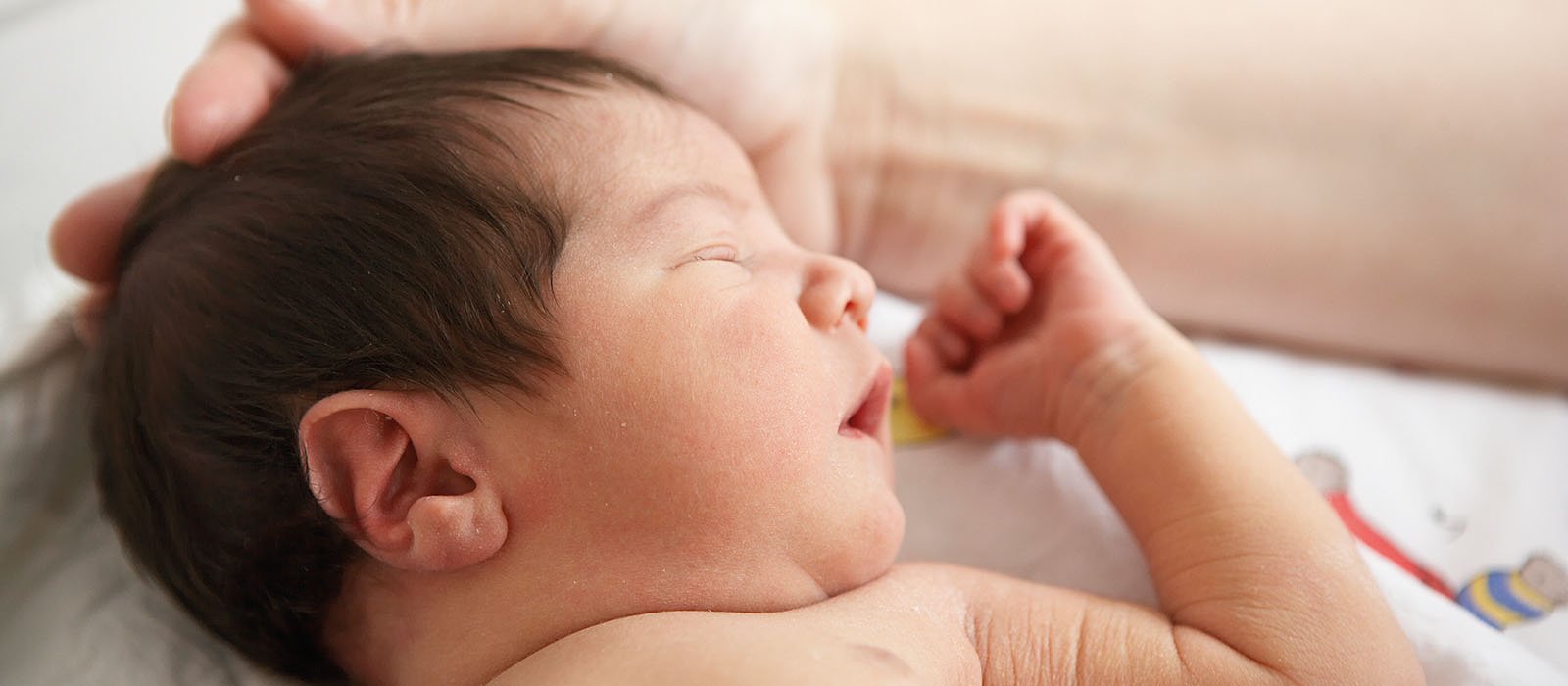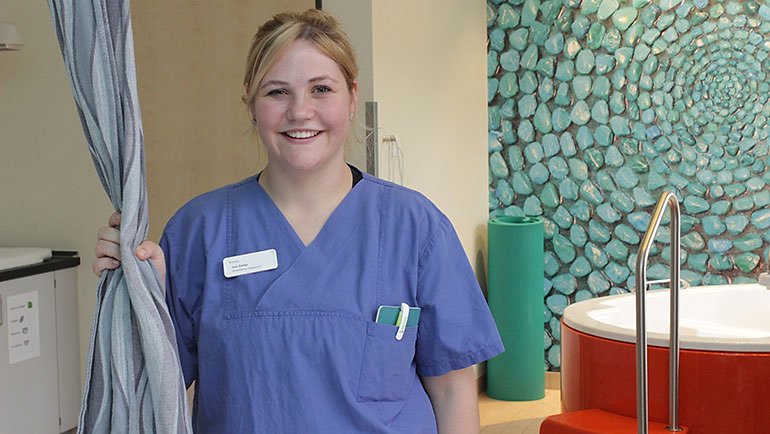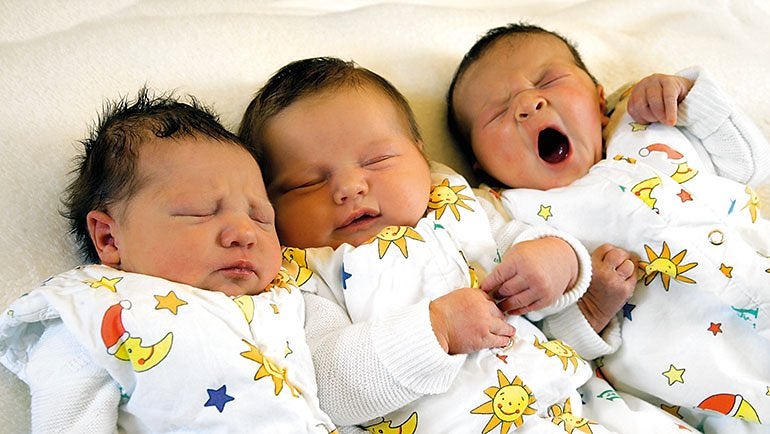

Following the birth of her son Joona in April 2018, Lea Zerbe is certain: “I want to become a midwife.” It is a courageous decision that comes from the heart. She leaves her old job and, after her paternity leave ends, begins studies to become a midwife.
(Published: July 2020)
Lea had always been torn between two main interests: “On the one hand I love everything creative; culture and music – on the other hand I have always been a people person.” After her pregnancy, the 28-year-old made up her mind. “People are more important.”
Upon leaving high school, her outlook was a little bit different. Lea considered several career paths before deciding on a curriculum of cultural studies and business administration at the University of Lüneburg in northern Germany – opening the door to a career in the world of culture. “Even then I knew that it probably wouldn’t be permanent,” she recalls. “I’m not an office person. I want to work with people as much and as closely as possible.”
With her studies completed, she found work organizing music and film festivals, but it fell short of her expectations. “I had played with the idea of becoming a professional midwife for a long time, but I couldn’t really come to grips with it until I got pregnant,” Lea says, thinking back to the time when she not only was carrying new life, but was also ready to try something new. Lea wanted to know everything about the development of a child, churning through book after book and taking courses. Pregnancy was a beautiful experience for her, during which she learned more and more about the midwife profession.

The shortage of midwives in Germany is a big problem. For that reason, expectant mothers are advised to look for a midwife right from the onset of pregnancy, in order to secure someone who can lend support in the early stages. Even if this is often a time of great joy, there are also uncertainties and complaints; nausea, for example. And should it come to a tragic situation like a miscarriage or infant mortality, a midwife can lend support and make the necessary arrangements.
“Through my own pregnancy, I saw how important the work of a midwife is, and how good it feels when someone is there to help the expectant family along,” Lea says. And this ultimately led her to apply for a trainee position at Helios Mariahilf Hospital. The dual study program lasts four years and culminates in a Bachelor of Science degree. Together with two other trainees, she is learning how to best accompany women before, during and after birth.
The profession is multifaceted, with many options for trainee midwives to find employment in an area that suits them. The duties of a midwife extend well beyond those which are visible in a hospital. Births, naturally, are at the center of what midwives do. However, their duties can cover the entire spectrum from family planning through the woman’s pregnancy and on to postnatal care.
Midwives can perform the same precautionary examinations as gynecologists during pregnancy – with the exception of ultrasound. Midwives also help with the complaints and burdens that can result from a pregnancy. In addition, they prepare expectant mothers and their partners for the birth, and make home visits to advise on supplementary foods and breastfeeding in the days following birth. Some midwives also teach, explaining the stages of pregnancy and birth as part of sex education for primary-school students.
Lea is optimistic about her future as a midwife. “In school, they always talk about the supreme discipline of birth, but I think it is the complete package that is important. I simply want to be there for women in this most special time in their lives.”
Contact
Helios Kliniken GmbH
Friedrichstr. 136
10117 Berlin
Germany
T +49 30 521 321-0

